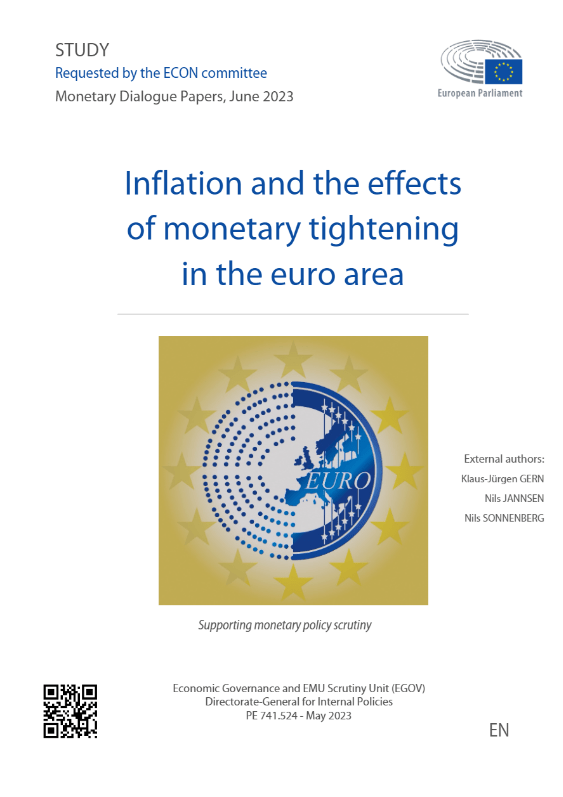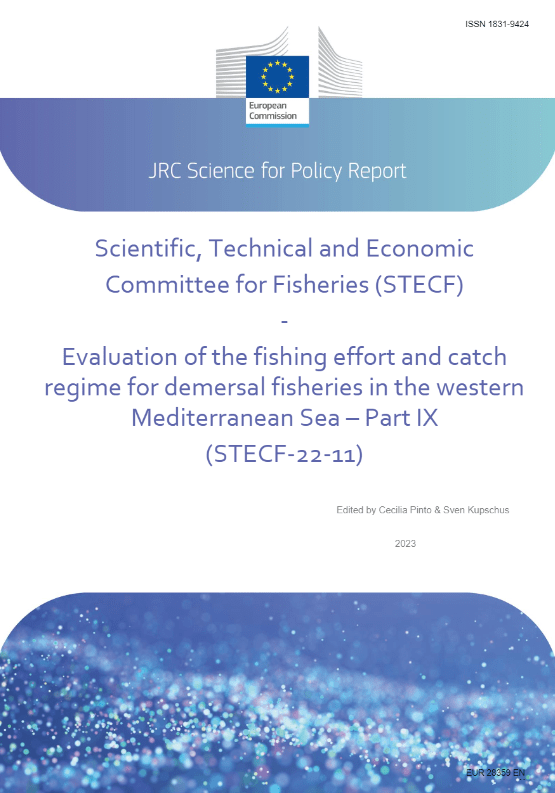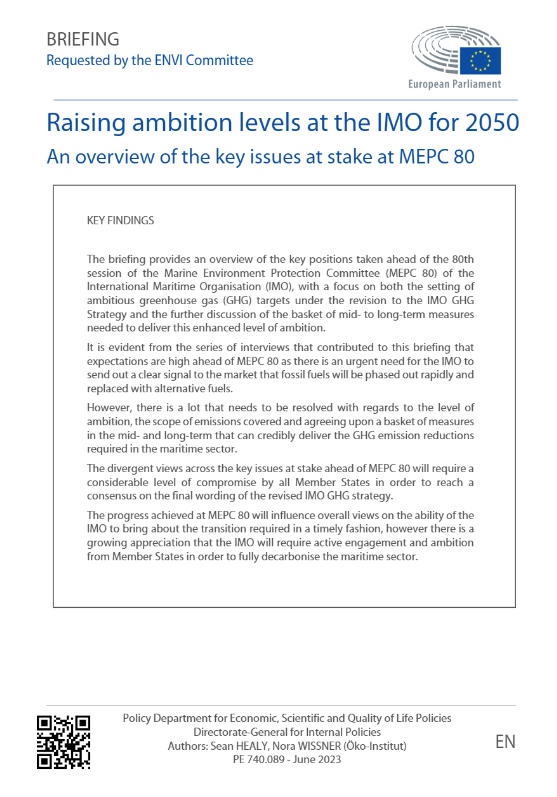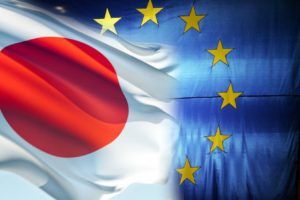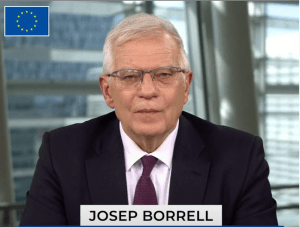
CDE Almería - Centro de Documentación Europea - Universidad de Almería
Centro de Documentación Europea de la Universidad de Almería
Cultura y Educación
Documentación comunitaria en las áreas de Cooperación Internacional Universitaria, Digitalización en el Ámbito Educativo, Espacio Europeo de Educación Superior y Patrimonio Cultural Europeo. Contiene también las últimas noticias, mediateca y boletines relacionados con la materia.
Estás aquí: Fondo Digital CDE > Cultura y Educación

After inflation in the euro area started to rise to unprecedented levels, the ECB has tightened monetary policy rapidly. We analyse the implications of high inflation and the effects of monetary policy tightening on the euro area economy. While financial conditions have already tightened significantly, the size and timing of the impact on the real economy is more difficult to assess. Distributional effects can be expected to be modest and should not be a major concern for monetary policy. This document was provided by the Economic Governance and EMU Scrutiny Unit at the request of the Committee on Economic and Monetary Affairs (ECON) ahead of the Monetary Dialogue with the ECB President on 5 June 2023.
[Leer Más]Commission Decision of 25 February 2016 setting up a Scientific, Technical and Economic Committee for Fisheries, C(2016) 1084, OJ C 74, 26.2.2016, p. 4–10. The Commission may consult the group on any matter relating to marine and fisheries biology, fishing gear technology, fisheries economics, fisheries governance, ecosystem effects of fisheries, aquaculture or similar disciplines. This report is the ninth of a suite of STECF EWG reports dedicated to the evaluation of the implementation of the Western Mediterranean Sea Multi-Annual management Plan (hereafter, MAP), following EWG reports 18-09, 18-13, 19-01, 19-14, 20-13, 21-01, 21-13, 22-01. The group was requested to implement mixed fisheries bio-economic models to run a number of scenarios up to 2030 with varying parameters, to evaluate a fishing effort reductions for trawlers, longliners and netters in association to vessel number reductions for trawlers, increase in mesh size for trawlers, existing closure areas and catch limits for deep water shrimps (ARA and ARS) through five scenarios and draft a mixed fisheries advice.
[Leer Más]The briefing provides an overview of the key positions taken ahead of the 80th session of the Marine Environment Protection Committee (MEPC 80) of the International Maritime Organisation (IMO), with a focus on both the setting of ambitious greenhouse gas (GHG) targets under the revision to the IMO GHG Strategy and the further discussion of the basket of mid- to long-term measures needed to deliver this enhanced level of ambition. It is evident from the series of interviews that contributed to this briefing that expectations are high ahead of MEPC 80 as there is an urgent need for the IMO to send out a clear signal to the market that fossil fuels will be phased out rapidly and replaced with alternative fuels. However, there is a lot that needs to be resolved with regards to the level of ambition, the scope of emissions covered and agreeing upon a basket of measures in the mid- and long-term that can credibly deliver the GHG emission reductions required in the maritime sector. The divergent views across the key issues at stake ahead of MEPC 80 will require a considerable level of compromise by all Member States in order to reach a consensus on the final wording of the revised IMO GHG strategy. The progress achieved at MEPC 80 will influence overall views on the ability of the IMO to bring about the transition required in a timely fashion, however there is a growing appreciation that the IMO will require active engagement and ambition from Member States in order to fully decarbonise the maritime sector.
[Leer Más]- « Anterior
- 1
- …
- 18
- 19
- 20
- 21
- 22
- …
- 5.922
- Siguiente »
Noticias relacionadas
Boletines CDE
- BOLETÍN INFORMATIVO EDUCACIÓN Y CULTURA EN LA UE (Nº9)
- BOLETÍN INFORMATIVO EDUCACIÓN Y CULTURA EN LA UE (Nº8)
- BOLETÍN INFORMATIVO EDUCACIÓN Y CULTURA EN LA UE (Nº7)
- BOLETÍN INFORMATIVO EDUCACIÓN Y CULTURA EN LA UE (Nº6)
- BOLETÍN INFORMATIVO EDUCACIÓN Y CULTURA EN LA UE (Nº5)
- BOLETÍN INFORMATIVO EDUCACIÓN Y CULTURA EN LA UE (Nº4)
- BOLETÍN INFORMATIVO EDUCACIÓN Y CULTURA EN LA UE(Nº 3)
- BOLETÍN INFORMATIVO EDUCACIÓN Y CULTURA EN LA UE (Nº 2)
- BOLETÍN INFORMATIVO EDUCACIÓN Y CULTURA EN LA UE (Nº1)
